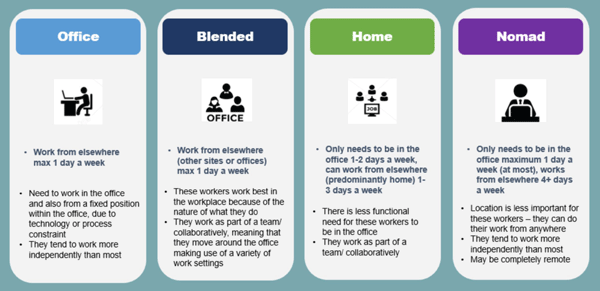Work has changed during the pandemic. According to McKinsey, the pandemic has accelerated digital transformation in organizations by three to four years. And workers have adapted accordingly. For example, LinkedIn data shows that remote jobs, which make up about 20% of all LinkedIn jobs, receive more than 50% of all job applications!

This illustrates that resistance to some degree of flexible working will put businesses at a competitive disadvantage. Not all organizations realize this, and they hold on to old techniques that previously did. For example, 95% of executives believe that employees need to stay in the office to maintain company culture. In addition, a study of human behavior in Nature found that collaboration among Microsoft employees decreased by 25% and became more muted in a remote setting compared to pre-pandemic levels.
Despite this, 64% of employees would consider quitting if they were expected to return to the office full-time. Hybrid working has become part of modern work culture, and we believe companies like Goldman Sachs and leaders like Elon Musk are fighting a losing battle.
Employees want clear communication and modern policies. We expect that in 2023, HR practitioners will have clear policies on how, where and when to work. They will facilitate internal conversations on these issues and push their organizations to make decisions, even if they are temporary, as organizations explore different workplace strategies.
HR professionals will also educate themselves and managers to overcome proximity bias, which is an unconscious tendency to favor employees over remote workers you often see in the office. They will work to establish objective performance metrics, criteria for promotion and salary increases.
Next, HR will reinvent the role of the office. Clear work ethic will influence office planning and use. This will lead to better designed workspaces, flexible spaces to combat potential loneliness at home and workspace allowances to upgrade home amenities.
Last but not least, HR itself will become more hybrid and explore remote work. HR has a leading role in enabling better outcomes through remote working, and we expect to see more of this in 2023.

 Follow
Follow